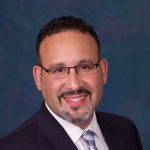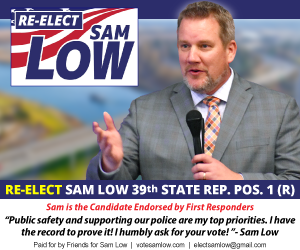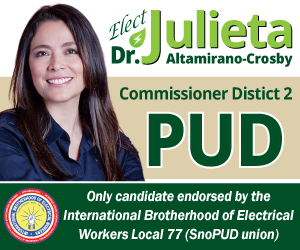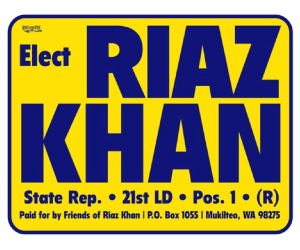In a September 1st Facebook event hosted by the National Parent Teacher Association (PTA) and the CDC Foundation, a lineup of experts discussed the effects of COVID-19 on education and how educators can ensure safe practices as schools reopen across the country.

Hosted by NBC News’ Kate Snow, the event, referred to as a “back to class virtual town hall,” covered a range of topics, including segments on keeping children safe in schools, creating meaningful family partnerships with schools and teachers, and healthy minds for parents and students amidst the pandemic.
After an introduction by Anna King, President of the National PTA, a short video from special guest Jill Biden played, in which she sympathized with parents worried about the safety of returning to in-person education.

“A simple cough can start your heart racing, and you know that at any moment, a quarantine could send your kids home and upend your routine. . . . This administration will always be a partner to you. We can’t know what our future holds, but we know what we owe our children. We owe them a promise to do all that we can to keep their schools open and as safe as possible; we owe them a commitment to follow the science; and we owe them unity so that we can fight the virus, not each other,” Biden said.
Parent Listening Session Survey
In the first segment, Deputy Executive Director of Government Affairs and Communications Elizabeth Rorick discussed the results of the PTA’s “parent listening sessions,” which included a 1,448-person study that ranged across 9 states.
“The findings show that parents continue to juggle multiple worries. Those worries range from social/emotional learning, to academics, to their child staying safe and healthy. But they are most concerned about their child getting Covid,” said Rorick.
Of those surveyed, 60 percent admitted to worrying some or a lot about their students contracting COVID at school and getting sick.
The survey also found that only 25 percent of parents feel comfortable sending their children back to school for in-person learning this school year.
“There is also a difference across race and ethnicity, with more white parents feeling comfortable than African American and Hispanic parents,” Rorick added.
When asked which mitigation protocols parents would like to see schools put in place, staying at home when sick, cleaning and disinfecting, and handwashing were the most important to parents, respectively. Ventilation, contact tracing and quarantine, masking, and social distancing were voted as the least important to parents, likely because these protocols have “the least personal impact on their child,” Rorick acknowledged.
Though parents disagreed on whether vaccines should be considered as a safety recommendation for students, the survey showed a consensus that parents did not support any protocols that group or separate students by their vaccination status.
“Parents really want all the precautions used by schools to apply to all students, not just subsets. And the reason is they’re worried about bullying . . . with 52 percent of our parents having some level of concern about bullying due to vaccination status,” Rorick said.
National PTA Recommendations for Safe Reopening Protocols
The panel of experts agreed that a safe reopening process requires “mitigation protocols,” not just in schools but in the community as well.

“School reopening or school closing has more to do with what we’re doing in the community and the community spread. So let’s do our part not only in the classroom and the schoolhouse but in the community,” Dr. Miguel Cardona, Secretary of Education at the U.S. Department of Education, explained.
But according to the study, parents are still concerned about the Delta variant affecting their children amidst a return to school.
“We do know Delta to be more transmissible . . . but we’re seeing outbreaks [of the Delta variant] in places where these mitigation strategies are not occurring,” CDC Director Dr. Rochelle Walensky said.

For parents worried about children who are under 12 and cannot yet be vaccinated, Walensky shared that the best way to protect them is to “cocoon them” with people who are vaccinated.
The question of vaccines for young children was also discussed amongst the panel, with Walensky being asked about the timeline of vaccines for children under twelve. Walensky explained that data will be released by the middle or early fall. Then it is up to the FDA to authorize emergency use, which she expects will come by the end of the year. She also expects a plan for an immediate rollout.
“Everyone recognizes how important it is for those children to have access to vaccines,” she added.
For parents worried about the long-term effects of the vaccine in their children, Dr. Lee Ann Savio Beers, President of the American Academy of Pediatrics, explained that “if there are going to be side effects, we see that in the first 6 to 8 weeks.”
The panel acknowledged parents are not only split on vaccines, but many are lobbying for schools to choose vaccine mandates one way or the other.
“We need to come together for our students . . . We need to follow the science. We know what works. Educators know what works to keep children safe. We need to make sure that educators and our public health experts have the final say on how to safely reopen school. This is a health pandemic. Let’s rely on our health experts to safely open schools,” Cardona advised parents.
Building strong relationships amongst students, teachers, and parents
Many of the experts agreed that strong parent-teacher relationships are the key to a successful return to in-person learning this school year. Several of the panelists reiterated the importance of building strong relationships with not only teachers but all school staff in order to support the students.
One panelist, however, took that idea a step further, indicating that parents should not view the school as serving them, but as a place they can serve.
“The main thing is to keep reminding parents that when they engage with the school, when they engage with the PTA, to not come with a consumer mindset. You’re not asking them what they can do for you, you’re asking how you can partner together because healthy school communities are built by everybody there . . . It needs to include everybody,” said PTA Parent Leader Amy Wood.
While most of the experts agreed that schools can safely return to in-person learning with safe protocols and healthy parent-teacher relationships, Oakland educator Lakisha Young claimed otherwise.
“I think it’s [about] giving a more radical push. We’re sort of idealizing in-person learning, in a sense,” adding that “in Oakland, less than 30 percent of Black and brown students are reading at grade level—so when the pandemic hit Oakland, we built a virtual family hub. And so that hub was providing high-impact academic and social programming for our students, and it worked,” Young said.
“We should not be idealizing a specific way of instruction. We need to be focusing on high-quality, high-impact learning for all kids, which was the call of action we should have been doing from the very beginning,” she added.
The National PTA Facebook event video is currently available on the organization’s Facebook page.



















